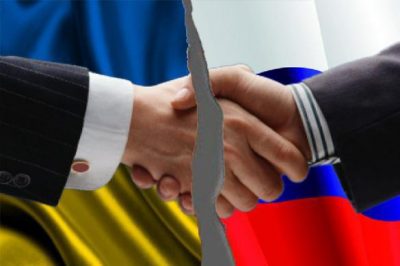Russia-Ukraine Istanbul Talks End Without Peace Accords

All Global Research articles can be read in 51 languages by activating the “Translate Website” drop down menu on the top banner of our home page (Desktop version).
To receive Global Research’s Daily Newsletter (selected articles), click here.
Visit and follow us on Instagram at @globalresearch_crg and Twitter at @crglobalization. Feel free to repost and share widely Global Research articles.
***
Members of the Russian and Ukrainian diplomatic delegations met on March 29 to negotiate peace terms in Istanbul, Turkey, after more than a month of “Special Military Operation”. The conversations did not have much practical effect.
The Ukrainians made a series of proposals, some of which met Russian demands for pacification and others did not. There was no scheduling of a personal meeting between two presidents Putin and Zelensky, which practically rules out the possibility of an official agreement in the short term. Quite unexpectedly, however, the Western media has been describing the Istanbul talks’ results as a peace deal, which is obviously not true.
The meeting did not start in a very friendly way. Both delegations, amidst the hostility of the conflict, refused to greet each other, opening the conversations in an impolite manner. There were not many expectations of good results in the negotiations, but the promises of reducing violence were positive. Kiev presented some proposals that matched Russian demands but harmed its package of conditions by insisting on a review of some issues that are out of negotiation for the Kremlin.
Moscow’s core demands can be summed up in neutral Kiev, outside of NATO and the EU, recognizing Crimea as part of Russia and the Donbas republics as independent countries. In the midst of the current scenario, the Ukrainian government already seems resigned to the fact that it is impossible to join NATO and is also gradually accepting that the EU will not give space to Kiev.
However, Zelensky remains adamant about the regions that have ceased to be part of Ukrainian territory since 2014. Moscow has already made it clear that there is no possibility of reviewing Crimea’s legal status under any circumstances and that the Donbas republics must have their sovereignty recognized without reservations. So, either Zelensky fully accepts such conditions or the peace talks will always be fruitless.
However, despite all the obstructions, the talks ended better than expected as at least the Ukrainian government was willing to compromise on some points, which was enough for the Russian delegation to consider the possibility of reducing the intensity of operations in some regions. Spokespersons for the Kiev delegation said that the next rounds would focus on discussing humanitarian issues and ceasefire possibilities, ruling out any chance of dialogue on territorial issues.
In some western media channels, the talks were treated, however, as a great advance for peace and there are even some fake news circulating on the internet about a possible end to the conflict. Clearly, data is being manipulated in order to promote an information war in which the dominant narrative is that Russia has accepted conditions of peace. The result of this is to justify the need for new coercive measures against Russia in the coming days, as the conflict will obviously continue and then the same channels that pointed out that Russia had committed to the end of the Operation will then claim that Moscow has failed to fulfill its vows of peace.
It is important to emphasize that there has been no significant progress towards peace. Russia will continue the operation and there is no expectation of an end to the conflict in the short term. There was a positive balance in terms of negotiating mutual promises and reducing violence, but not in ending military activities. Over the course of eight years, the Russian government maintained the most peaceful stance possible on the Ukrainian crisis, remaining inert in the midst of the civil war and trying to prevent the genocide in Donbass through legal and diplomatic means.
This stance is officially over. Now, it is no longer in Russia’s interest to sign any premature peace agreement that will generate new clashes in the future. Moscow is unyielding in its plan to keep Kiev neutral and demilitarized, outside the Western military and economic blocs and passive in the face of territorial issues in Crimea and Donbass.
The fact that a meeting between Putin and Zelensky has been ruled out shows that there is, for the time being, no disposition towards an end to the conflict, considering that an agreement of such nature could only be signed by the two leaders or their respective foreign ministers. So, the biggest positive balance so far is the fact that Russia is still willing to partially reduce the intensity of operations in some regions, as it has done since the beginning of the conflict. It was the Russian side that has promoted all the de-escalations so far, opening up humanitarian corridors and allowing the flow of aid to the victims. On the other hand, violations of such measures have become commonplace for Ukrainian troops, without any denouncement by the pro-NATO western media.
In the end, despite mainstream media’s propaganda, there is no asymmetry of conditions in the current situation. The basic package of measures demanded by Moscow needs to be met by Zelensky for peace to happen. Russia does not seem to be in a hurry to sign an agreement and is willing to maintain the military mission for as long as necessary to achieve its objectives.
*
Note to readers: Please click the share buttons above or below. Follow us on Instagram, @globalresearch_crg and Twitter at @crglobalization. Feel free to repost and share widely Global Research articles.
Lucas Leiroz is a researcher in Social Sciences at the Rural Federal University of Rio de Janeiro; geopolitical consultant.
Featured image is from PravdaReport

